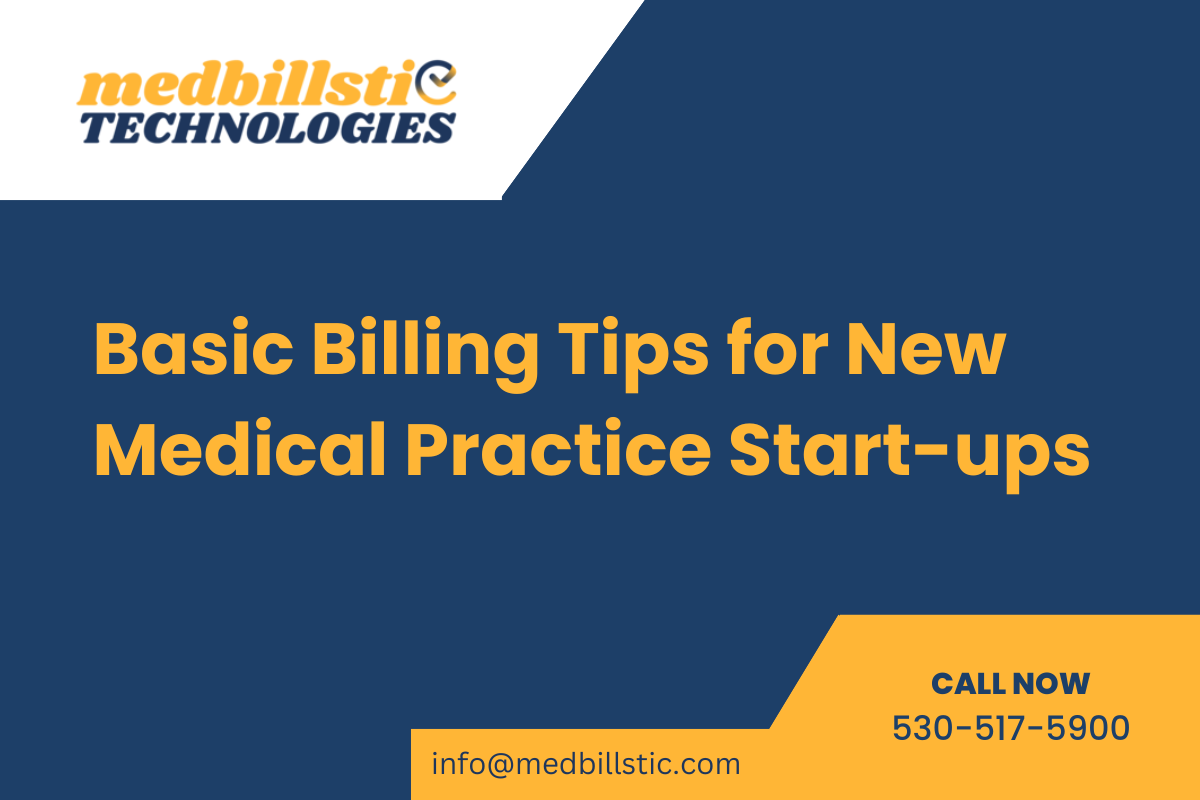Starting a new medical practice is an exciting venture, but it comes with its fair share of challenges. One critical aspect that often gets overlooked in the midst of medical expertise and patient care is billing. Proper billing is essential not only for the financial health of your practice but also for providing transparency and satisfaction to your patients. In this article, we will explore some basic billing tips tailored for new medical practice start-ups. Whether you are a seasoned medical professional or just starting out, these tips will help you navigate the intricate world of medical billing effectively.
Table of Contents
- Understanding the Basics of Medical Billing
- Choosing the Right Billing System
- Credentialing and Contracting
- Accurate Patient Data Collection
- Coding and Documentation
- Timely Claim Submission
- Follow Up on Outstanding Claims
- Transparent Patient Billing
- Staff Training and Education
- Regular Billing Audits
- Conclusion
1. Understanding the Basics of Medical Billing
Medical billing involves the process of submitting and following up on claims with health insurance companies to receive payment for services rendered by a healthcare provider. It’s essential to have a fundamental understanding of this process, including the various codes used, reimbursement policies, and the role of insurance providers.
2. Choosing the Right Billing System
Selecting the right billing system for your medical practice is crucial. You can opt for in-house billing or outsource it to a professional billing service. Each option has its pros and cons, so weigh them carefully to make an informed decision.
3. Credentialing and Contracting
Before you can start billing insurance companies, you need to be credentialed and contracted with them. This process can be time-consuming, so initiate it well in advance to avoid delays in receiving payments.
4. Accurate Patient Data Collection
Ensure that your staff collects accurate patient information during registration. Errors in patient data can lead to claim denials and delayed payments. Implement a systematic approach to data collection to minimize errors.
5. Coding and Documentation
Accurate coding and thorough documentation are essential for successful medical billing. Familiarize yourself with the latest coding guidelines and ensure your healthcare providers document services accurately and completely.
6. Timely Claim Submission
Don’t procrastinate when it comes to claim submission. Timely submission increases the chances of getting paid promptly. Set up a system to submit claims as soon as services are provided.
7. Follow Up on Outstanding Claims
Sometimes claims get denied or delayed for various reasons. Implement a robust follow-up process to track outstanding claims and address issues promptly. Persistent follow-up is key to maximizing revenue.
8. Transparent Patient Billing
Make sure your patients understand their bills. Provide clear and concise explanations of charges, insurance coverage, and any out-of-pocket expenses. Transparency in billing fosters trust and patient satisfaction.
9. Staff Training and Education
Invest in training and educating your staff on billing procedures and best practices. Well-informed staff members can help prevent billing errors and streamline the revenue cycle.
10. Regular Billing Audits
Perform regular billing audits to identify and rectify any billing errors or inefficiencies. Audits help maintain billing accuracy and compliance with regulations.
Conclusion
In conclusion, successful medical billing is a critical component of a thriving medical practice. By understanding the basics of medical billing choosing the right billing system and following these essential tips. You can navigate the complex world of medical billing with confidence. Remember that proper billing not only ensures financial stability but also contributes to patient satisfaction and trust.
Frequently Asked Questions (FAQs)
Q1: What is medical billing, and why is it important for a medical practice?
Medical billing is the process of submitting and following up on claims with health insurance companies to receive payment for healthcare services provided. It is essential for a medical practice because it ensures timely and accurate reimbursement, contributes to financial stability and fosters transparency in patient billing.
Q2: How can I choose the right billing system for my medical practice?
Choosing the right billing system depends on your practice’s specific needs and resources. You can opt for in-house billing, where you handle billing within your practice, or outsource it to a professional billing service. Consider factors like cost, expertise, and scalability when making this decision.
Q3: What is credentialing, and why is it necessary for medical billing?
Credentialing is the process of verifying a healthcare provider’s qualifications and establishing contracts with insurance companies. It is necessary for medical billing because without proper credentialing, you cannot bill insurance companies for your services. Initiate the credentialing process early to avoid delays in payments.
Q4: Why is accurate patient data collection important for medical billing?
Accurate patient data collection is crucial because errors in patient information can lead to claim denials and delayed payments. To ensure billing accuracy, implement a systematic approach to collect and verify patient data during registration.
Q5: How can I ensure transparency in patient billing?
To ensure transparency in patient billing, provide clear and concise explanations of charges, insurance coverage and out of pocket expenses. Make sure patients understand their bills and have access to billing related information. Transparency in billing builds trust and patient satisfaction.
At MedBillstic, we pride ourselves as a premier revenue cycle company, specializing in comprehensive medical billing services. With over 15 years of dedicated service, our expert medical billing and coding team ensures precision in securing insurance reimbursements for your healthcare organization. For in-depth insights into our specialty-specific medical billing and coding services, reach out to us at info@medbillstic.com or call us at 530-517-5900. Your revenue cycle management is in capable hands with MedBillstic.

